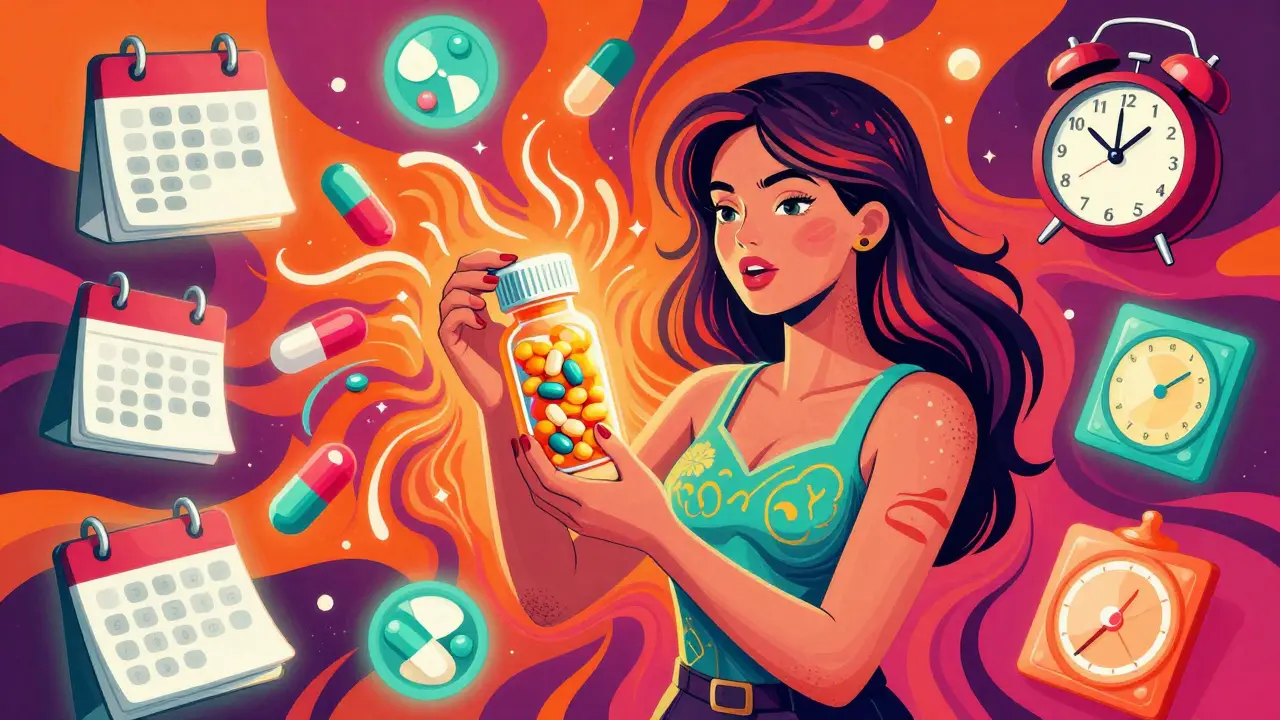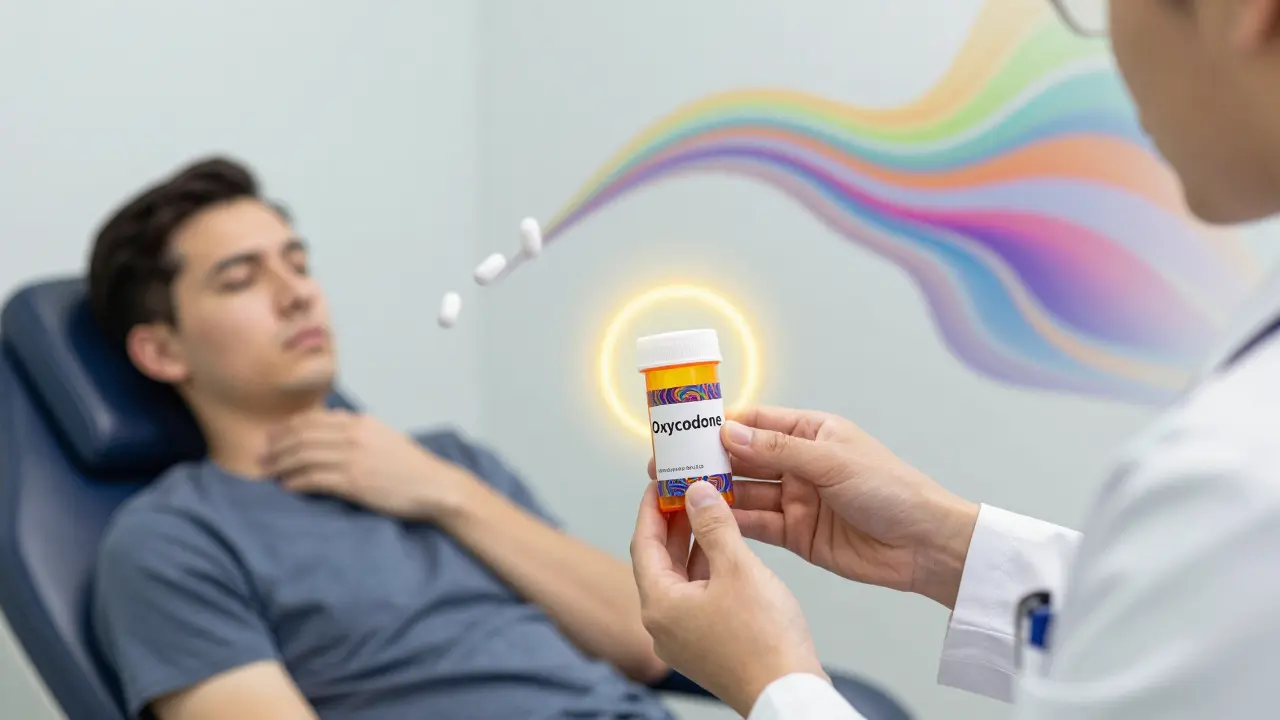Side Effects: What to Watch For and How to Handle Them
Side effects are one of the most common reasons people stop medications or get worried. Some are mild and expected, like drowsiness or stomach upset. Others are rare but serious, like severe allergic reactions or dangerously low blood sugar. Knowing the difference helps you stay safe and avoid unnecessary panic.
First, read the drug label and the packet insert. It lists common side effects and red flags. If you’re prescribed Glucotrol XL, for example, low blood sugar is a known risk—so watch for shaking, sweating, or confusion. If you take Antivert (meclizine), drowsiness and dry mouth are common. A quick read gives you a heads-up so you can spot problems early.
Common Side Effects and What They Mean
Common side effects usually show up soon after starting a drug and are often dose-related. Nausea, headache, mild diarrhea, or temporary dizziness fit here. These often fade after a few days as your body adjusts. For antibiotics like Zithromax (azithromycin), expect possible stomach upset or loose stools; take with food if it helps.
Some side effects signal you should change how you take the medicine. If a blood pressure drug causes lightheadedness when you stand, try taking it at night or talk to your doctor about a lower dose. If a medication affects your mood or sleep, weigh benefits versus the trouble it causes and bring that up with your prescriber.
When to Call for Help
Call your doctor or emergency services right away for signs of a serious reaction: rash with swelling, trouble breathing, fainting, chest pain, severe belly pain, or sudden confusion. For diabetics on sulfonylureas or Glucotrol XL, symptoms of very low blood sugar—seizures or loss of consciousness—need immediate care. Allergic reactions can escalate quickly, so don’t wait.
Also contact your provider if a side effect is interfering with daily life even if it’s not life-threatening. If a drug causes persistent insomnia, severe sexual side effects, or continuous vomiting, there are often alternative medicines or dosing strategies that work just as well without the same problems.
Interactions matter. Combining medicines, supplements, or even certain foods can make side effects worse. For example, grapefruit can change levels of many drugs, and some antidepressants interact badly with other common meds. Keep an updated list of everything you take and share it with each provider and pharmacist.
Practical steps you can take right away: track symptoms in a simple log, avoid alcohol unless approved, adjust timing or food with the drug if the label allows, and use an app or reminders for doses. If you buy medication online, choose reputable pharmacies and check reviews—some of our guides cover safe sources for drugs like lisinopril, cefdinir, or ivermectin.
Side effects are normal but manageable. With basic knowledge, good communication with your healthcare team, and quick action when needed, you can reduce risk and keep your treatment on track.
mRNA therapeutics have revolutionized medicine, but their side effects and long-term safety are closely monitored. Learn what’s common, what’s rare, and how global systems track safety after approval.
Birth control pills are widely used but their effectiveness drops without perfect use. Learn how they work, their real-world failure rates, common side effects, dangerous drug interactions, and what to do if you miss a pill.
Opioid rotation helps patients reduce side effects like nausea and drowsiness by switching to a different opioid. It’s not about quitting opioids-it’s about finding one that works better for your body. Learn when it’s used, which swaps work best, and how to stay safe.
A comprehensive 2025 guide comparing Sildigra Softgel to Viagra, Cialis, Levitra and generic sildenafil, covering efficacy, price, side effects and how to pick the right ED medication.
Explore how antidepressant medication works, its main classes, benefits, side effects, and how to combine meds with therapy for effective depression management.
A clear, up‑to‑date guide on Hydrea (hydroxyurea). Learn what it treats, how to take it safely, common side effects, drug interactions, and practical tips for patients.
Dilantin is a cornerstone in the world of epilepsy treatment, helping people manage seizures for more than 80 years. This article explores how Dilantin works, what to expect if you’re prescribed it, and practical tips for living with this medication. It dives deep into possible side effects, drug interactions, and the realities of daily life on phenytoin. Whether you’re new to Dilantin or helping take care of someone who uses it, you’ll find specific, up-to-date info here that makes a real difference.
Want real, straight talk about Nexium? This article uncovers what Nexium does, how it works for heartburn and acid reflux, plus smart ways to handle side effects. Get honest facts, practical tips, and clear answers about this well-known medication millions rely on when stomach acid bites back.
Dealing with a dry cough caused by Irbesartan can be quite troublesome, but I've discovered some helpful tips to cope with it. First, drinking plenty of water keeps you hydrated and soothes the throat. Second, using a humidifier adds moisture to the air, providing relief to your dry cough. Third, sucking on throat lozenges or cough drops helps to suppress the cough and provide temporary relief. Lastly, if the cough persists or worsens, discuss with your doctor the possibility of switching to a different medication.









